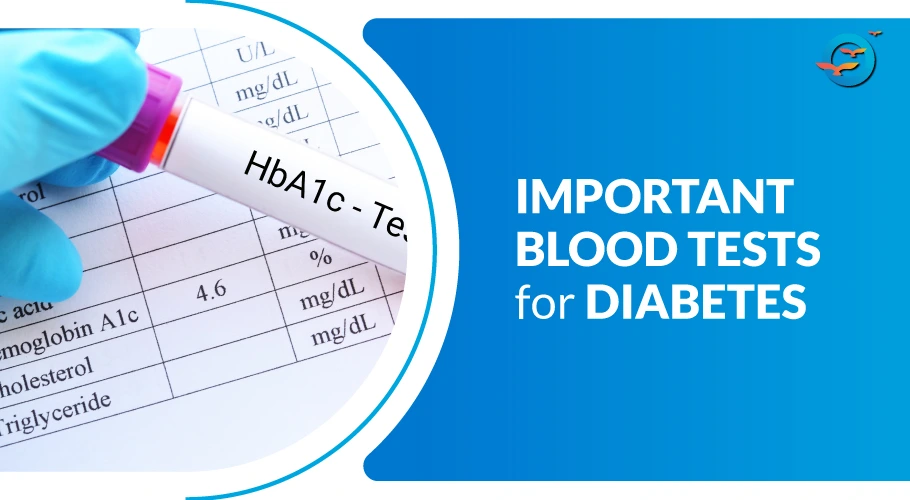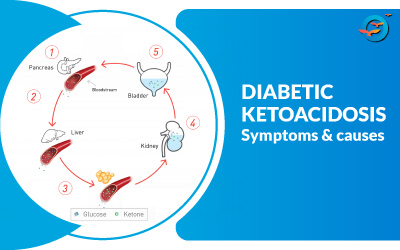Blood tests for Diabetes

Are you confused about the different types of blood tests for diabetes? Wondering which ones are most important and why? Look no further! Our comprehensive guide will give you all the information you need to understand about the top lab tests for diabetes mellitus.
From HbA1c to fasting glucose, we break down what each test measures and how they can help manage your diabetes. Don't let confusion stand in the way of your health - read on to gain a better understanding of these crucial blood tests!
Introduction to Diabetes and Blood Tests
If you have diabetes, it is important to monitor your blood sugar levels regularly. The ADA recommends that people with diabetes get a fasting plasma glucose (FPG) test at least once a year. An FPG test measures your blood sugar after you have fasted for at least 8 hours. A hemoglobin A1c (HbA1c) test should also be done every 6 months to track your long-term blood sugar control. People with diabetes should aim for an HbA1c level below 7%.
If you or a loved one has been diagnosed with diabetes, it's important to understand the different blood tests used to manage the condition. Here we'll provide an overview of the most common blood tests used in diagnosing and managing diabetes.
Your doctor may also order other blood tests to check for complications of diabetes such as kidney disease or nerve damage.
Types of Blood Tests for Diabetes
- The first is the HbA1c test, which measures your average blood sugar level over the past two to three months. This test is important because it can help your doctor determine if your diabetes treatment plan is working and if your blood sugar levels are under control.
- The second type of blood test for diabetics is the fasting blood sugar test. This test is usually done in the morning before you eat or drink anything. It measures your blood sugar level after you have fasted overnight. This test is important because it can help your doctor see how well your body is able to control your blood sugar levels overnight.
- The third type of blood test for diabetics is the post-meal blood sugar test. This test is usually done two hours after you eat a meal. It measures your blood sugar level after you have eaten and digested food. This test is important because it can show how well your body handles glucose (sugar) after you eat a meal.
The PP (post meal) sugar should be checked after 2 hrs of starting the meal as recommended by FFD.
- The fourth type of blood test for diabetics is the urine glucose test. This test measures the amount of glucose in your urine. This information can be used to help your doctor adjust your diabetes treatment plan if necessary.
- The oral glucose tolerance test (OGTT) is used to diagnose diabetes and prediabetes. The OGTT measures your blood sugar level after you have fasted for at least 8 hours and then consumed a sugary drink. A normal OGTT result is below 140 mg/dL, while an OGTT result of 140 mg/dL or above indicates diabetes.
Benefits of Regular Diabetes Testing
There are several benefits to regular diabetes testing, even if you don't have diabetes. Diabetes testing can help you to:
- Detect diabetes early.
Early detection is key to preventing serious complications from the disease. - Monitor your blood sugar levels.
Regular testing will help you to keep your blood sugar levels under control. - Detect other health problems.
Diabetes testing can sometimes reveal other health problems, such as kidney disease or high cholesterol.
Preparation Before Testing
Before you get a blood test for diabetes, your doctor will likely:
- Take your medical history
- Do a physical exam
- Check your blood sugar levels
Your doctor may also ask you to fast for 8 hours before the test. This means no eating or drinking during that time, except water.
How to Interpret the Test Results?
Interpreting the results of your blood tests for diabetes can be confusing and overwhelming. However, it is important to understand what your results mean in order to make the best decisions for your health. Here is a comprehensive guide to understanding the top blood tests for diabetes:
-
HbA1c Test:
The HbA1c test measures your average blood sugar level over the past two or three months. This test is used to diagnose diabetes, as well as to monitor and manage glucose levels in those who have already been diagnosed with the condition.
A normal HbA1c level is below 5.7%, while a diagnosis of diabetes is made when the HbA1c level is 6.5% or higher. -
Fasting Blood Sugar Test:
The fasting blood sugar test measures your blood sugar level after you have fasted (abstained from food and drink) for at least eight hours. This test is used to diagnose diabetes, as well as to monitor glucose levels in those who have already been diagnosed with the condition.
A normal fasting blood sugar level is below 100 mg/dl, while a diagnosis of diabetes is made when the fasting blood sugar level is 126 mg/dl or higher. -
Oral Glucose Tolerance Test:
The oral glucose tolerance test measures your body's ability to process glucose (sugar). This test is used to diagnose diabetes, as well as to monitor glucose levels in those who have already been diagnosed with the condition. During this test
Understanding the top blood tests for diabetes is an important step in managing your health. While it’s true that there are many different types of tests and assessments available, it’s essential to understand how each can help you monitor your disease and stay on track with keeping your blood sugar levels in balance.
Regular checkups about health are a must with passing age but reversing diabetes is the best approach to avoid any complications. Freedom from diabetes helps people reverse their diabetes and gives them freedom from medicines.
Join our introductory program DRS to get an overview of how diabetes reversal happens following which you can also join our annual program HTP to actually begin your journey towards health!
FAQs
What are the common blood tests for diabetes?
Common tests include the HbA1c test, fasting blood sugar test, random blood glucose test, and the oral glucose tolerance test.
What is the HbA1c test?
The HbA1c test measures your average blood sugar levels over the past 2-3 months to check how well your diabetes is managed.
Why is a fasting blood sugar test important?
It helps measure your blood sugar levels after an 8-hour fast to diagnose or monitor diabetes.
How does a random blood glucose test work?
This test checks blood sugar levels at any time of the day, regardless of when you last ate.
Can I do diabetes blood tests at home?
Yes, you can use a glucometer to monitor blood sugar levels, but certain tests like HbA1c may require a lab visit.
What is the purpose of an oral glucose tolerance test?
This test measures how your body processes glucose after drinking a sugary solution, often used to diagnose gestational diabetes.

